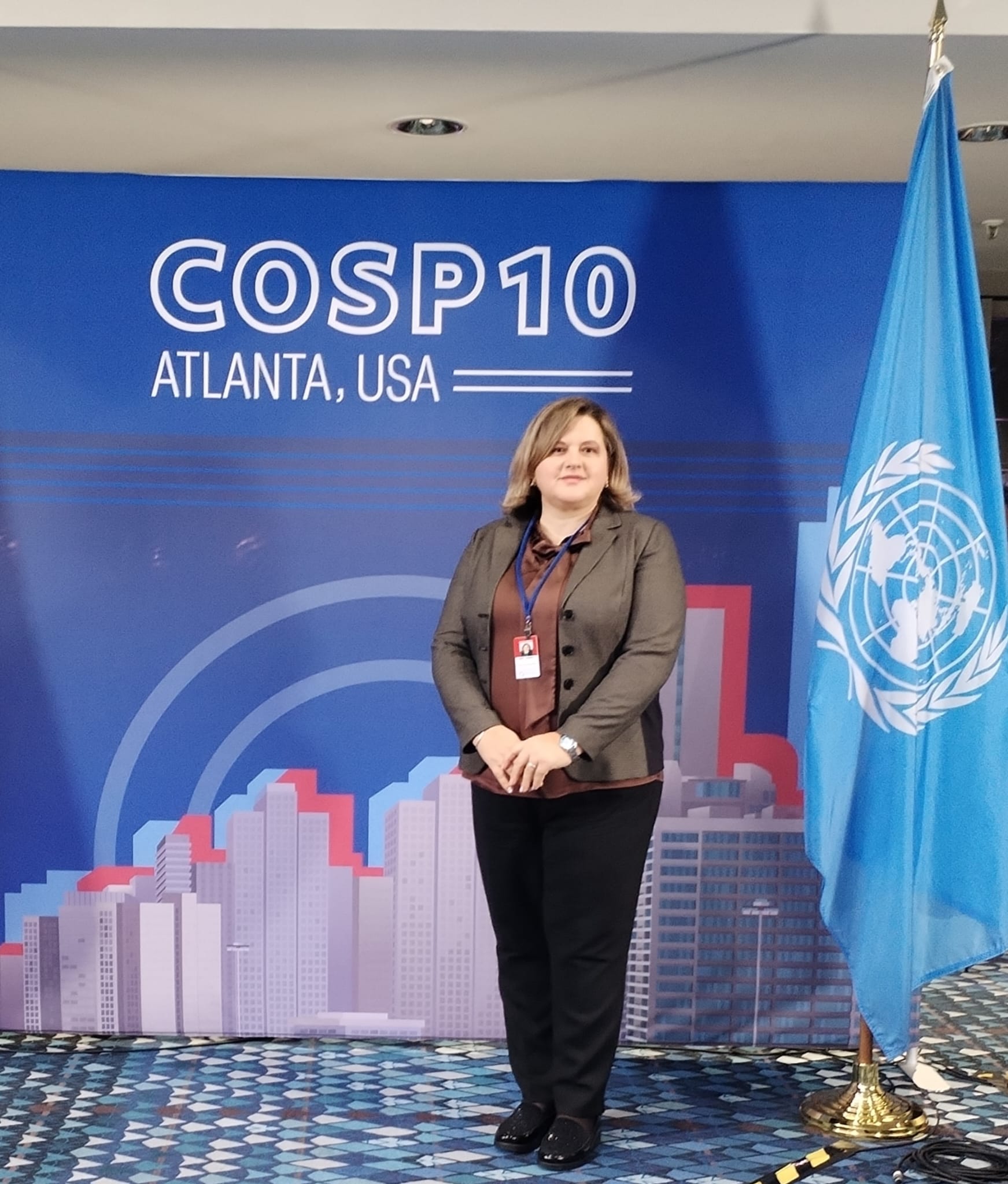Promoting a Participatory Approach to Anti-Corruption in Bosnia and Herzegovina
June 2024, Bosnia and Herzegovina – The Council of Ministers of Bosnia and Herzegovina (BiH) has recently adopted a new Anti-Corruption Strategy and corresponding Action Plan to guide the country’s efforts to prevent corruption, hold perpetrators accountable and strengthen inter-institutional, regional, and international cooperation during the period from 2024 to 2028.
Damirka Mioc, Deputy Director of the BiH Agency for Prevention and Coordination of the Fight Against Corruption (Anti-Corruption Agency), reflects on the process for the development of this new strategy, which had been long overdue and is a key priority for BiH’s bid to join the European Union:
“The work began with a conference at the end of last year where, thanks to UNODC support, we learned about experiences of the countries in the region, as well as good international practices in the preparation of anti-corruption strategies.”
An inclusive process
The BiH Anti-Corruption Agency led the consultations on the new strategy, backed by a 43-member inter-institutional working group, with technical support from UNODC and other international partners, including civil society.
“We were guided by the desire to reflect the circumstances in BiH as realistically as possible, whilst putting emphasis on the need to fulfil all international standards”, says Ms. Mioc.
During the meetings of the working group, a SWOT analysis was conducted as a basis for the identification of key goals and priorities.
“Coordination and inclusion were key. We wanted to involve a broad range of practitioners from government, civil society, the private sector, academia and the international community. E-consultations also allowed the general public to have their say.”
Creating conditions for implementation
Preventing corruption is a core priority of the new strategy. This includes preventing conflict of interest, promoting business integrity, fortifying accountable public finance management, fostering public participation and rolling out anti-corruption education.
According to Ms. Mioc: “The intention was to develop a high-quality document that will create good conditions for its implementation.”
In addition to preventive measures, the strategy foresees enhanced engagement to investigate and prosecute corruption, conduct financial investigations and recover stolen assets.
Successful implementation of the strategy will require active monitoring and evaluation. This is foreseen through the strategy’s action plan, which contains indicators, assigns responsible agencies and specifies the timeframe for implementation. Each participating agency is expected to develop its own anti-corruption plan, whilst the BiH Anti-Corruption Agency will facilitate annual reporting to the Council of Ministers.
“We are happy to see the commitment of BiH to promote anti-corruption education and youth empowerment, including through UNODC’s GRACE initiative. The inclusion of activities to promote integrity of financial management and strengthen the links between auditors and anti-corruption professionals is also noteworthy, as this reflects the Abu Dhabi Declaration and other relevant resolutions adopted by the Conference of the States Parties to the UN Convention against Corruption”, noted Jasna Pekic, UNODC Regional Anti-Corruption Specialist.
Enhanced interagency, regional and international cooperation in tackling corruption is a core component of the new strategy.
“BiH is an active participant in the UNODC Global Operational Network of Anti-Corruption Law Enforcement Authorities (GlobE). We will continue to promote transnational cooperation in corruption cases through this network as foreseen in the adopted strategy”, Ms. Pekic added.
Exchange of experiences through the regional UNCAC platform
UNODC has been supporting this and other anti-corruption initiatives across the Western Balkans through its Regional Platform for Fast-Tracking the Implementation of the United Nations Convention Against Corruption (UNCAC) and a related Regional Anti-Corruption and Illicit Finance Roadmap, which was endorsed in 2021.
Recent results of this engagement in BiH include the signing of a Memorandum of Cooperation between the Supreme Audit Institution and Anti-Corruption Agency to work together for greater transparency, accountability and integrity in the allocation, use and monitoring of public funds. In BiH, UNODC has also facilitated the process of updating codes of conduct for law enforcement, thus supporting implementation of a key recommendation made by the Council of Europe’s Group of States against Corruption (GRECO). Promoting policy development on asset recovery and asset management has been another important area of UNODC involvement in the country.
The Regional UNCAC Platform has enabled peer-to-peer exchanges. Practitioners from other Western Balkans jurisdictions shared their experience with anti-corruption strategies during the initial conference that kick-started the process for the development of the BiH strategy.
“Looking back at all stages of the process, I believe we have succeeded in our intention”, says Ms. Mioc.
“By managing corruption risk more efficiently and promoting positive social values, such as integrity, responsibility and transparency, we believe our strategy can contribute to a reduction in real and perceived levels of corruption as a basis for improved living conditions of all citizens and sustainable development of our country.”
